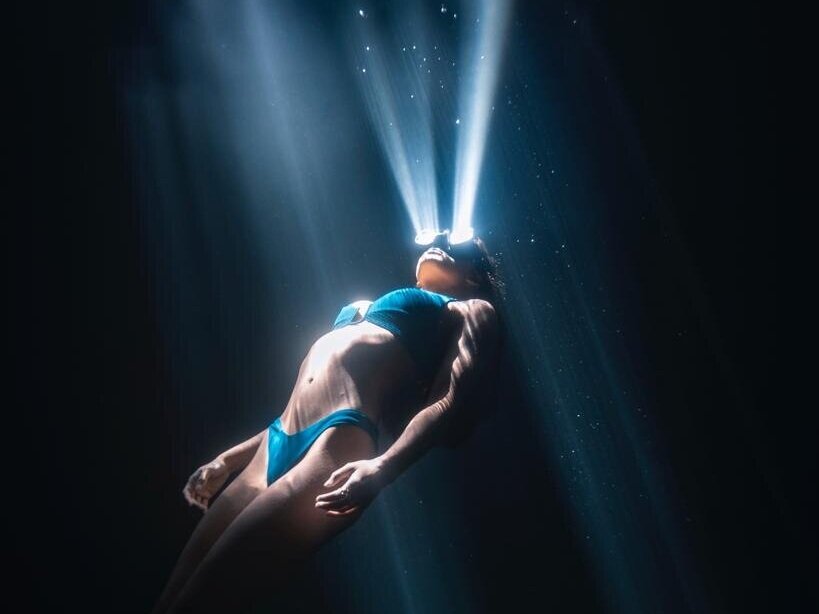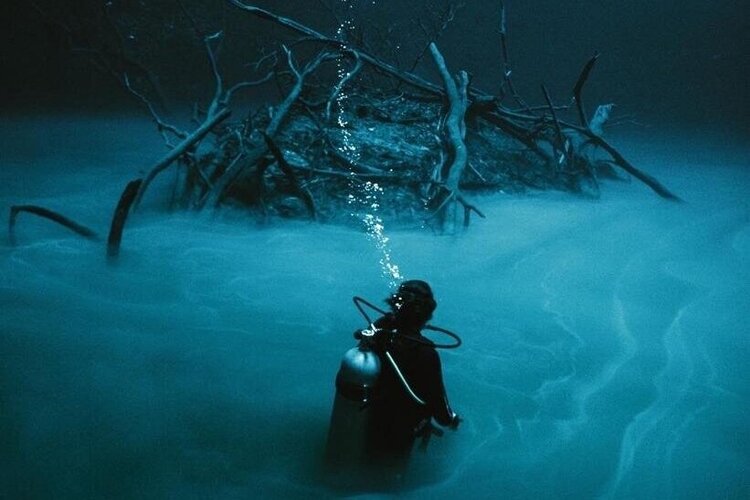
1. Your brain actually can’t measure how much oxygen is in your blood. Your urge to breathe comes from a buildup/elevated level of carbon dioxide (since you aren’t exhaling).
When you start to have ‘contractions’ sort of a light spasm in your diaphragm which is your body trying to tell you to breathe, generally that is about half of your potential static breath-hold time. For example, I start getting contractions at about 2 minutes and my longest breath-hold is 4:03. The world record static breath-hold (meaning laying facedown in water not moving) for women is 9:02 and 11:35 for men.
2. All of our bodies automatically make short-term adaptations when we are holding our breath in water.
These latent abilities are often called the Mammalian Dive Reflex. Just dipping your face (particularly the area around your eyes) underwater will cause your heart rate to lower. Your spleen ejects more red blood cells and all of these happen to enable you to hold your breath longer! I could talk about this one for ages but if you’re curious google Mammalian Dive reflex. As we dive more we can trigger these to happen faster. SO cool.
3. The average adult male has a total lung capacity of about 6 liters. As you descend the volume of air in your lungs compresses as the pressure underwater increases. At 33 ft (10 meters) it’s about half of what it was at the surface and at 99 ft (30 m) the air shrinks to ¼ what it was at the surface.
4. There’s a misconception that hyperventilating (or doing Wim hof etc) before diving helps you hold your breath longer.
This isn’t true. What it does is delays your urge to breathe (by lowering carbon dioxide) so you might feel better but in the end, it actually significantly increases your chance of a blackout. It also raises your heart rate which is counterproductive for optimal breath-hold.
5. Towards the surface, you need to equalize your ears every few feet because of how much the pressure changes.
The biggest challenge for most new freedivers is learning how to equalize. Most do it by pinching your nose through your mask and “pushing” a small amount of air from the lungs to the ears. Over time I have learned how to equalize hands-free (just using my jaw) so that’s why you won’t ever see me equalizing or pinching my nose in my diving videos!

An interesting book for those wanting to go deeper:
DEEP by James Nestor (about freediving and ocean exploration)
If you’re a freediver yourself or are curious about what equipment I use, I have a list of diving gear I use saved to my Amazon Storefront.
comments +